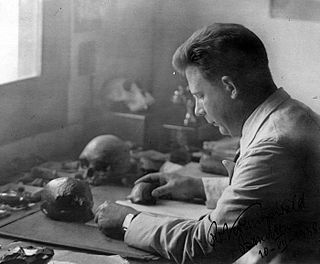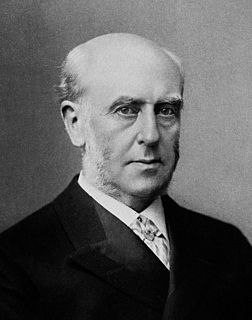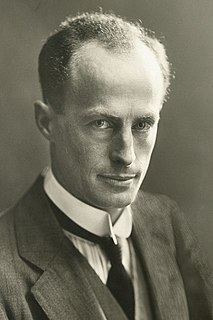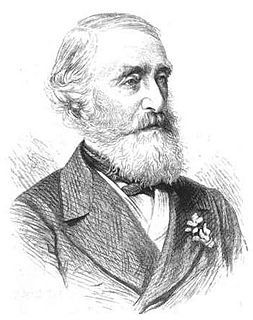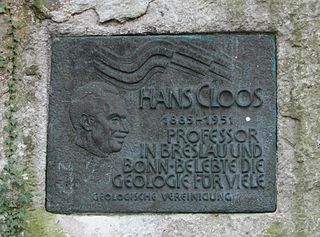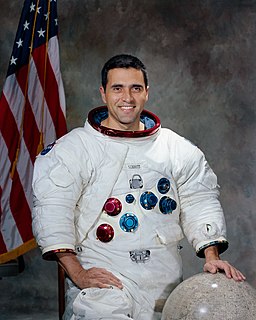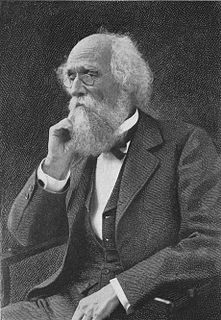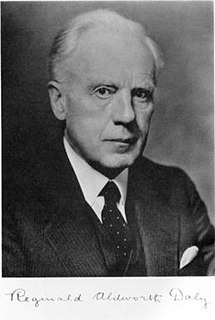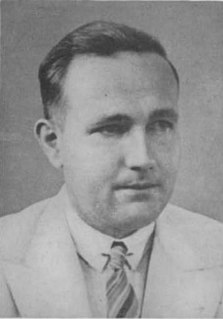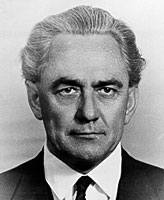A Quote by James Dwight Dana
Geology is rapidly taking its place as an introduction to the higher history of man. If the author has sought to exalt a favorite science, it has been with the desire that man-in whom geological history had its consummation, the prophecies of the successive ages their fulfilment-might better comprehend his own nobility and the true purpose of his existence.
Related Quotes
Every man should write a brief history of his life: his parentage, his birth, his religion, when he was baptized and by whom, when ordained, what to, and by whom-give a brief sketch of all his missions and of all his official acts and the dealings of God with him. Then if he were to die and the historians wished to publish his history, they would have something to go by.
It is a curious thing: man, the centre and creator of all science, is the only object which our science has not yet succeeded in including in a homogeneous representation of the universe. We know the history of his bones, but no ordered place has yet been found in nature for his reflective intelligence.
Man did not address his inquiries to the earth on which he stood until a remarkably late stage in the development of his desire for knowledge. And the answers he received to the questions, "Where do I come from?", "What is man?", although they made him poorer by a few illusions, gave him in compensation a knowledge of his past that is vaster than he could ever have dreamed. For it emerged that the history of life was his history too.
There is a man who exists as one of the most popular objects of leadership, legislation, and quasi-literature in the history of all men. . . . This man, that object of attention, attack, and vast activity, cannot make himself be heard, let alone understood. He has never been listened to. . . . That man is Black and alive in white America where the media of communication do not allow the delivery of his own voice, his own desires, his own rage.
What is a great man who has made his mark upon history? Every time, if we think far enough, he is a man who has looked through the confusion of the moment and has seen the moral issue involved; he is a man who has refused to have his sense of justice distorted; he has listened to his conscience until conscience becomes a trumpet call to like-minded men, so that they gather about him, and together, with mutual purpose and mutual aid, they make a new period in history.
It is marriage, perhaps, which had given man the best of his freedom, given him his little kingdom of his own within the big kingdom of the state.... It is a true freedom because it is a true fulfilment, for man, woman and children. Do we then want to break marriage? If we do break it, it means we all fall to a far greater extent under the direct sway of the State.
In that most burdensome moment of all human history, with blood appearing at every pore and an anguished cry upon His lips, Christ sought Him whom He had always sought—His Father. “Abba,” He cried, “Papa,” or from the lips of a younger child, “Daddy.” This is such a personal moment it almost seems a sacrilege to cite it. A Son in unrelieved pain, a Father His only true source of strength, both of them staying the course, making it through the night—together.
So far from having a materialistic tendency, the supposed introduction into the earth at successive geological periods of life,-sensation,-instinct,-the intelligence of the higher mammalia bordering on reason,-and lastly the improvable reason of Man himself, presents us with a picture of the ever-increasing dominion of mind over matter.
If Providence had not guided us I would often never have found these dizzy paths. Thus, it is that we National Socialists have in the depths of our hearts our faith. No man can fashion world history or the history of peoples unless upon his purpose and his powers there rests the blessing of this Providence.







